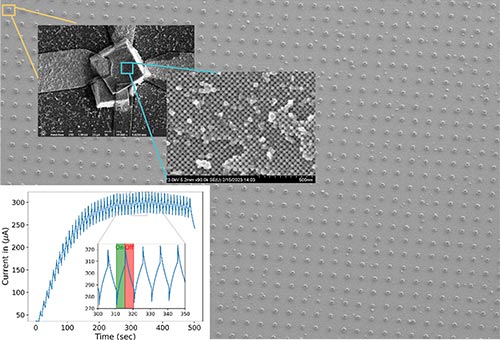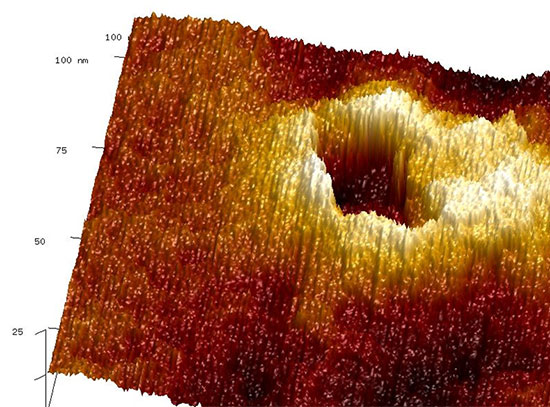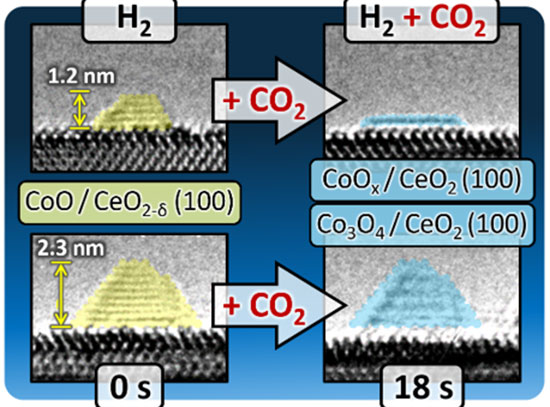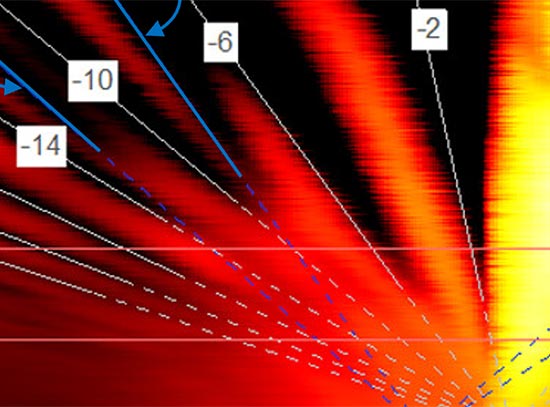Scalable Device Fabrication using DNA Self-Assembly
July 22, 2025
 enlarge
enlarge
DNA-based 3D assemblies are selectively grown on gold-patterned silicon substrates and templated with silica and tin oxide. The formed device shows photocurrent response.
Scientific Achievement
CFN led a project that created a scalable nanofabrication technique that integrates DNA-based self-assembly with conventional top-down approaches to create a 3D nanostructured device with photocurrent response.
Significance and Impact
The method combines molecular programming of DNA self-assembly with large-area lithography for massive 3D nanofabrication for potential applications in neuromorphic computing and photonic materials.
Research Details
DNA origami fabrication is a method of organizing and building material on the nanoscale. The capabilities presented here look not only at assembly but how these techniques can be used in conjunction with standard nanofabrication techniques to get the best of both worlds to build material for advanced manufacturing. This is a CFN led project that presents a scalable approach to nanofabrication combining the precision and 3D control of DNA origami assembly with top down fabrication techniques like lithography and ALD. Using this method the team was able to precisely grow thousands of nanolattices on predefined locations each was then functionalized using ALD to create devices that were sensitive to light to give a photocurrent response. DNA origami frames were used to selectively grow superlattices on gold-patterned silicon substrates.
- Nanolattices were templated with silica and infiltrated with tin oxide (SnOx) to achieve semiconducting properties.
- DNA origami frames were used to selectively grow superlattices on gold-patterned silicon substrates.
Publication Reference
Michelson et al., Sci. Adv. 11, eadt5620 (2025).
DOI: https://www.science.org/doi/pdf/10.1126/sciadv.adt5620
Acknowledgment of Support
This research used the Materials Synthesis and Characterization, and Electron Microscopy Facilities of the Center for Functional Nanomaterials, as well as 3-ID Hard X-ray Nanoprobe (HXN) beamlines of the National Synchrotron Light Source II, both of which are the U.S. Department of Energy (DOE), Office of Science User Facilities at Brookhaven National Laboratory under contract no. DE-SC0012704.
2025-22678 | INT/EXT | Newsroom









